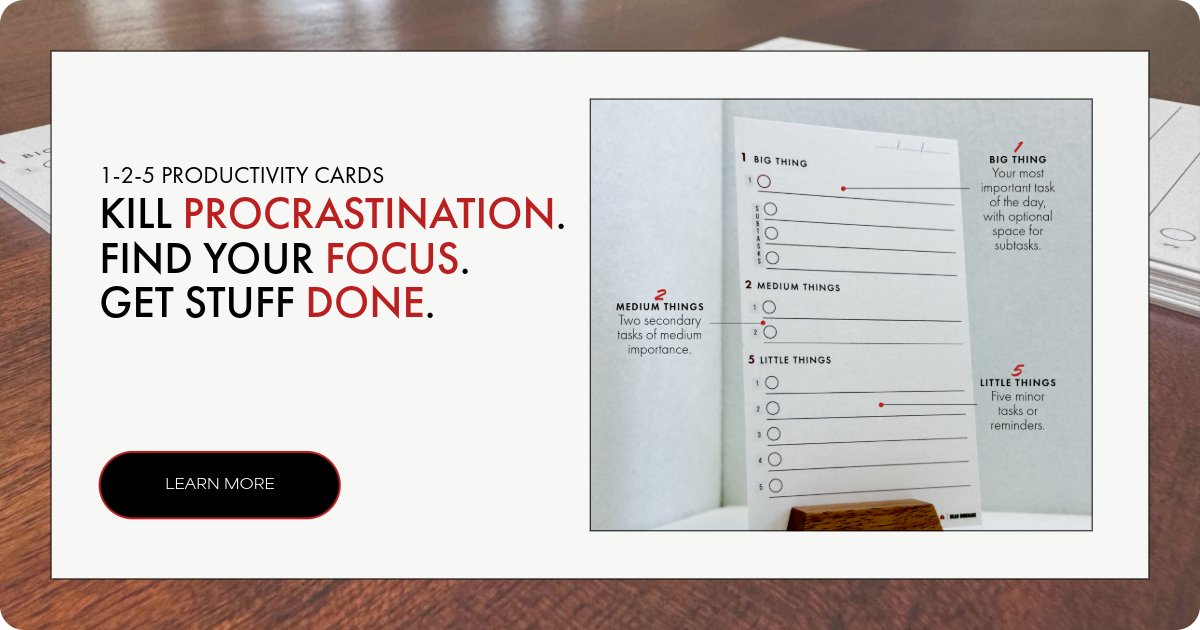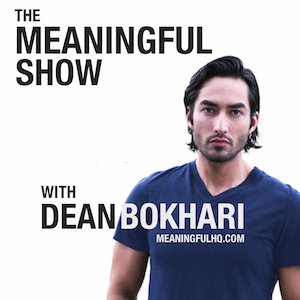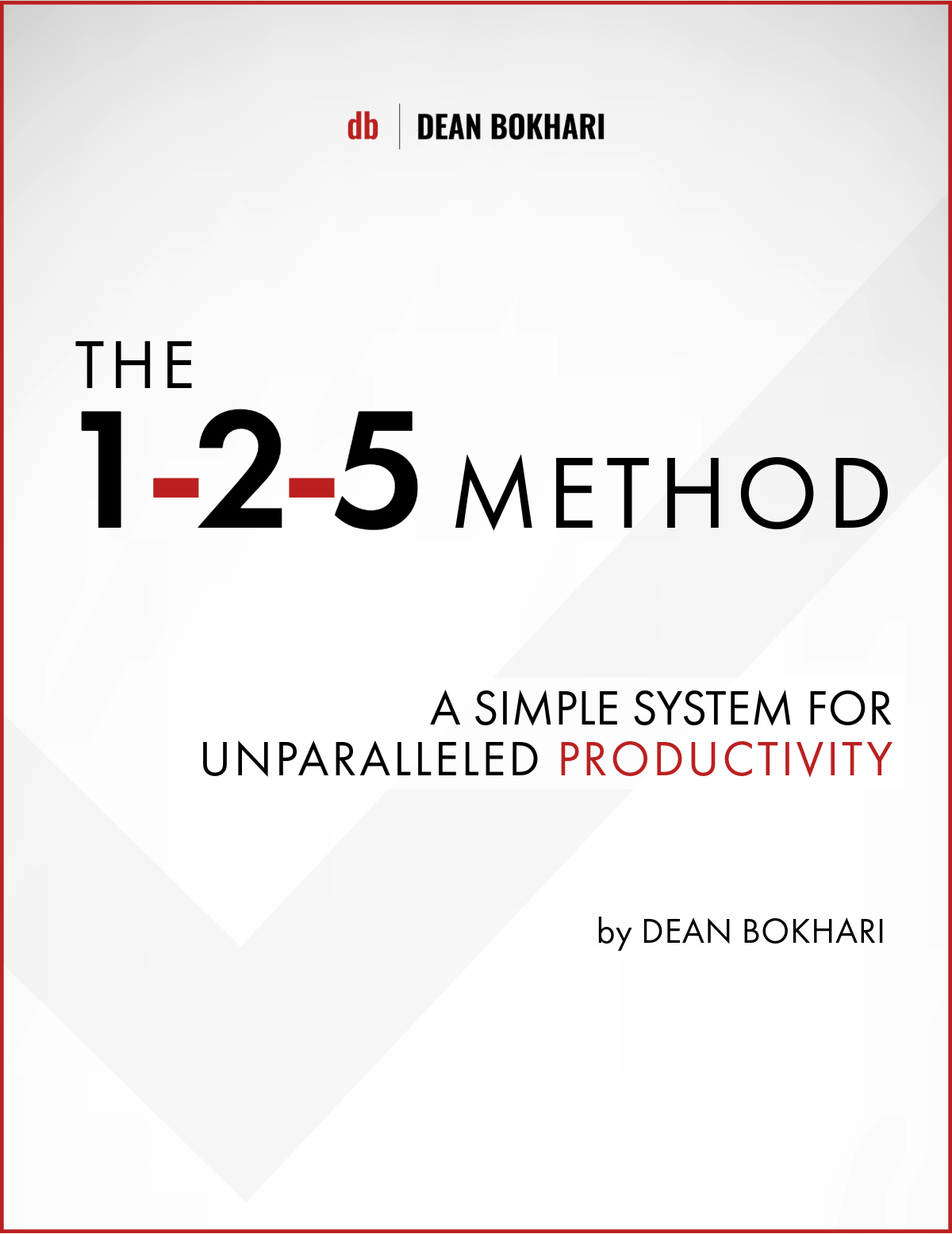Available Versions: Article, Podcast
the 3 enemies of mastery: meet the dabbler, obsessive & hacker
(from Mastery by George Leonard)
In his book Mastery, George Leonard writes that “we all aspire to mastery, but the path is always long and sometimes rocky, and it promises no quick and easy payoffs. So we look for other paths, each of which attracts a certain type of person.”
Those other paths that Leonard is talking about come in the form of three different personalities: The Dabbler, the Obsessive, and the Hacker.
Each of us identifies with at least one of these personalities, if not some combination of all three. And if we don’t know what to look out for, then the traits of these personalities can derail us from our path of success and mastery.
Let’s go over each of them one by one...
1. THE DABBLER
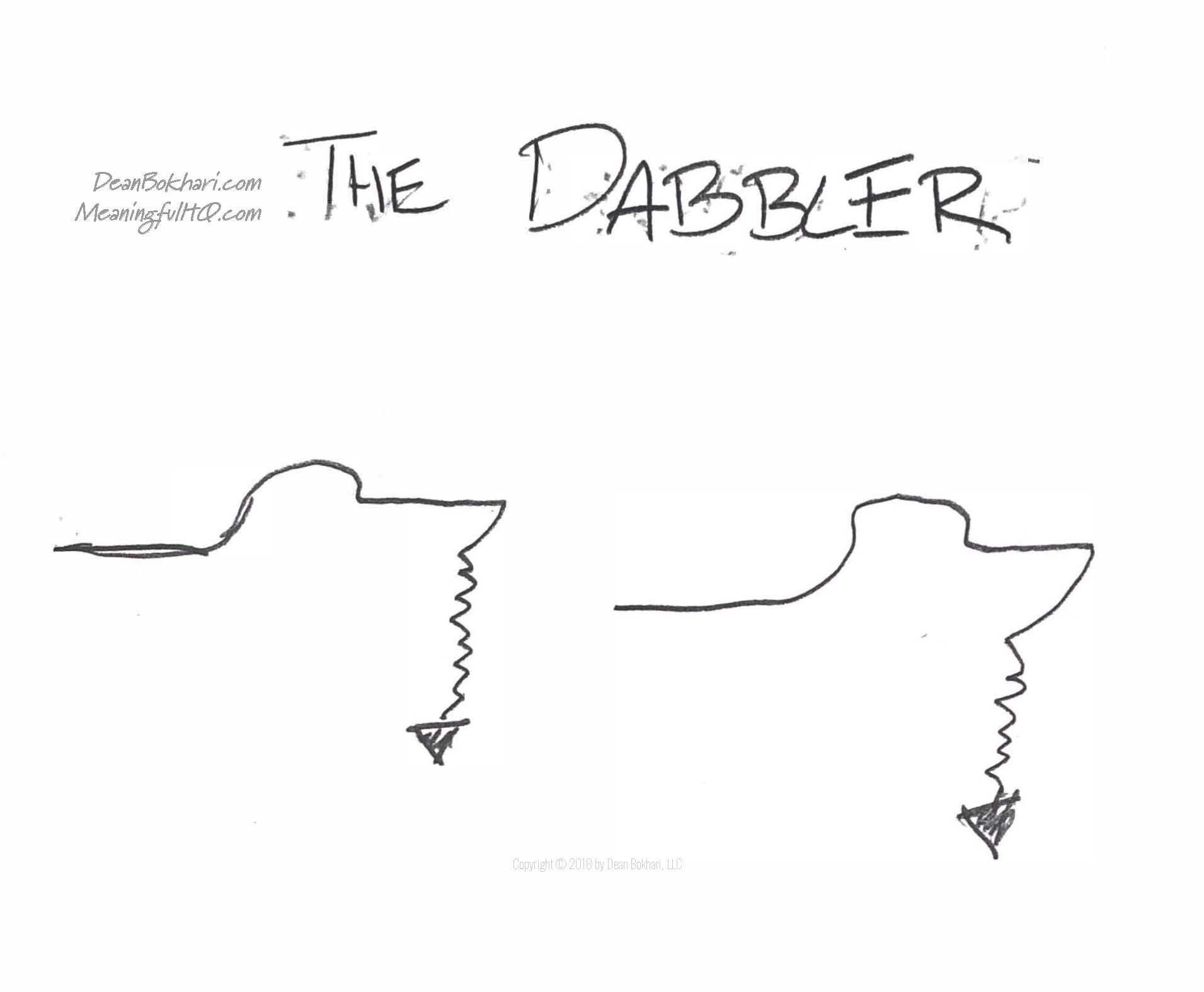
Dabblers love the high that comes from doing something new: new jobs, new hobbies, new relationships, etc. They’ll approach each new sport, career, or relationship with tons of enthusiasm. They tell all their friends; they post about it on social media; they buy all the gear. They love the “shine of newness.” They don’t mind putting in the initial work to learn something new because they find joy in the initial spurts of progress that come with learning the basics of a new skill.
But the moment a Dabbler hits a real plateau—especially if it causes them to lose some of the progress they initially made—they quit…
Dabblers love starting new jobs. They’re enthusiastic beyond belief about them. But when the peak begins to wane, they look elsewhere for another opportunity.
Dabblers love learning new sports. They signup for tennis lessons. They buy the freshest gear. The coolest tennis racquet. And they’re elated when they learn how to hit a tennis ball. But when the progress slows, and they realize it’ll take time to perfect their stroke, they decide that maybe it’s better to try a different sport.
Dabblers specialize in excuses and rationalizations. This new job/sport/relationship just isn’t for them… They’re surprised to see sharp stalls in progress. They’ll tell you it’s too competitive, or that it’s not competitive enough. They’ll say it’s too boring. Or too dangerous. Or they suddenly realize they don’t have the time for it or something. And then, after they’ve adequately rationalized why they should quit, the Dabbler does what they always do: set their sights on something new.
- The Dabbler, in a nutshell: they start something new, experience the highs that come with quick results, hit a plateau and create an excuse to quit and move on to the next thing. Obviously, no mastery.
2. THE OBSESSIVE
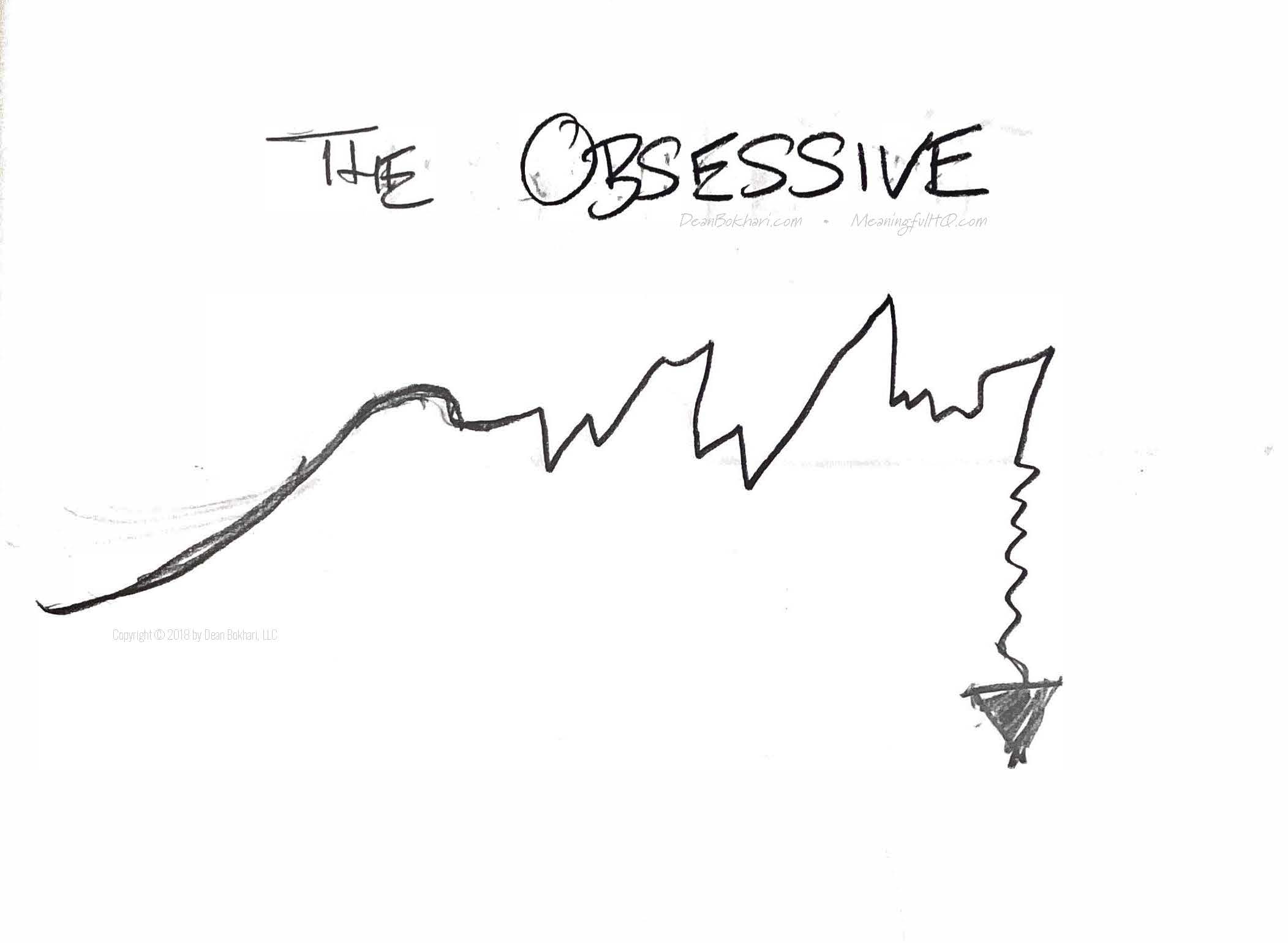
All they care about is results, results, results—and fast. So when they hit plateaus, they are just as appalled as the Dabbler. But rather than quitting, they double down. They ignore the fact that mastery takes sustained effort over time. They don’t mind putting in the effort, but they’ve got a problem with putting in the time—they want to get the tennis stroke right and hit the ball perfectly from their very first lesson. And when they can’t? They push even harder.
They push and push and push themselves to create a continued upward curve. But they push themselves too hard, and in do so, run out of gas. So what do they do? They look for shortcuts, of course. As they try to continue on the path and as things get increasingly difficult, they look for more and more cheats and crutches to get them the results they want.
The Obsessive becomes so obsessed with results that they don’t even realize they’re undermining themselves in the long run with these types of shortcuts.
The Obsessive is a lot like the typical bottom-line corporate executive we see today. They strive to keep the profit curve angled upward at any cost, even if it means massive lay-offs, sacrificing research and development, and bailing on long-term planning and profitability. The Obsessive wants results NOW, damnit!
The Obsessive does everything he can to keep his relationship alive. But his relationship becomes a rollercoaster ride with stormy separations and passionate reconciliations.
You can’t master calculus if you don’t master algebra. If you never properly learn to juggle three balls, you’ll inevitably drop everything when you try to juggle four. But the Obsessive refuses to understand this. They reject that mastery is cumulative—that it requires a solid foundation. And it hurts them terribly over the long run.
- The Obsessive, in a nutshell: they experience an upward curve, they hit a plateau, get impatient, try to push past it and move on to the next level, and then they run out of gas and experience a sharp downward decline. Obviously, no mastery.
3. THE HACKER
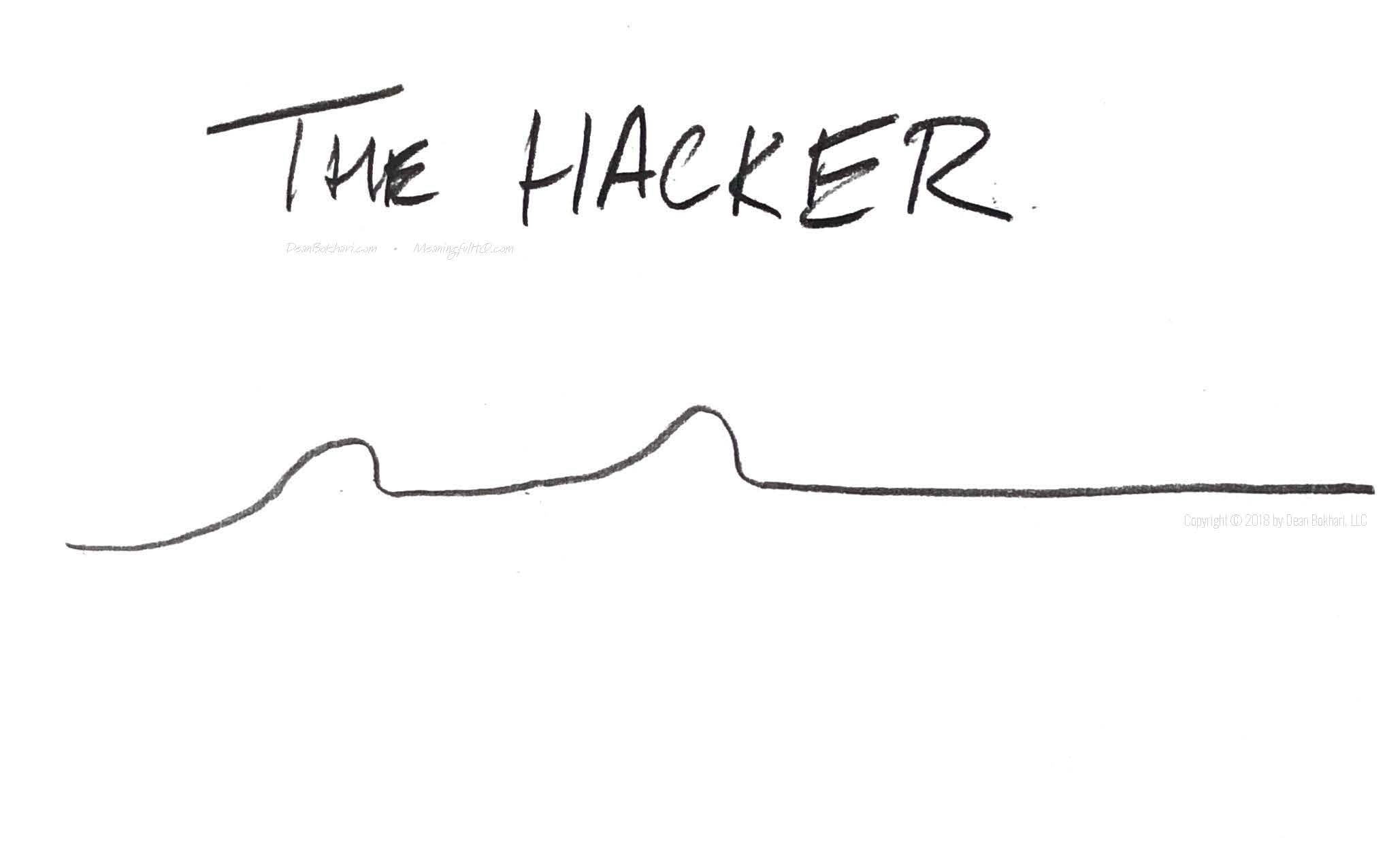
The third personality, the Hacker, is a bit different. Hackers begin reasonably well and make decent progress, but at a certain point, they stop caring. Once they’ve learned enough to feel comfortable with their situation, they stop trying to improve.
Hackers are happy with the status quo. Sometimes they don’t even realize they’ve put themselves in cruise control; they may think they’re performing their job rather well and so have no idea why they’re never promoted.
- The Hacker, in a nutshell: hackers just hack away at things, without working to improve their skills and grow beyond the basics. Obviously, no mastery.
ACTIONABLE INSIGHTS
A single individual might possess one, two, or all three of these personas in different situations. But no matter which style you embody, you’ll still end up far short of mastery if you don’t break the habits associated with them…
And that’s the point of learning about these three characters and which of them you identify with most—to understand why you may not be on the path of mastery… And to then, start taking the appropriate actions to get off the path of the Dabbler/Obsessive/Hacker and to instead get on the path of mastery.
Here’s a great way to start…
- Identify which of the three characters you identify with most by making a quick list of a few things you’ve tried recently (skills, sports, jobs, etc.) and how you approached them to show to yourself whether/when you’re a Dabbler, an Obsessive, and/or a Hacker.
- Once you know your tendencies, it’ll be easier to recognize them when you’re pursuing the path of mastery over something you really care about.
MASTERY & MEANING
If living a meaningful life is important to you, then it’s important to learn about the concept of mastery—the constant and never-ending pursuit of growth, knowledge, expertise and experience in a chosen area of your life.
In my view, there’s nothing more fulfilling than contributing to the lives of others doing something you’re great at and care about. Mastery helps you do that.
But as gratifying as the path of mastery can be, it can also be incredibly difficult… And at times, you may be tempted to bail on mastery and settle for mediocrity. Understanding these three personas will help you stay on the path of success—the path of mastery.
PS: If you're diggin' all this mastery-talk, check out the full book summary for Mastery by George Leonard here.
LIVE LIKE YOU GIVE A DAMN,
Dean Bokhari
- If you find the podcast helpful, please rate + review it on Apple Podcasts »
- Got a Self-Improvement question you'd like me to cover? Submit it here »
"Dean Bokhari's Meaningful Show is the Self-Improvement Podcast I've been
waiting for. It's actionable, inspiring, and BS-Free." —Brett Silo
✨ New Series: How to Become an Early Riser
- Discover key methods to make early rising a habit
- How to wake up early + energized every morning
- Morning routines for health + success
Free self-development courses
👇
Tap on any of the courses below to start learning how to:
- boost your productivity (with GTD),
- get focused (with Deep Work),
- or learn the art of influencing others (with the How to Win Friends & Influence People course.)
All for free.
👇
Free life guides
👇
Best-selling Self-development courses by Dean Bokhari
Kill procrastination.
|
Get stuff done.
|
Get motivated.
|
Connect with anyone.
|
freshly pressed:
Top Audiobooks narrated by Dean Bokhari on audible | |
Book summaries
- The Power of Habit by Charles Duhigg
- 12 Rules for Life by Jordan B. Peterson
- Presence by Amy Cuddy
- Leaders Eat Last by Simon Sinek
- The ONE Thing by Gary Keller, Jay Pasan
- Deep Work by Cal Newport
